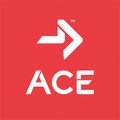Ramadan, which begins on March 10 or 11, 2024, and lasts for approximately one month (the exact dates depend upon the phases of the moon), is a time for Muslims to focus on fasting, prayer, reflection and community. Observing Ramadan involves fasting from dawn until sunset.
Of course, Ramadan is not the only religion-based fasting period. Many Christians fast during Lent, particularly on Ash Wednesday and Good Friday, while people of Jewish faith do so on Yom Kippur and other holidays. Many other faiths, including Buddhism, Sikhism and Hinduism, also fast as part of their religious observances.
Ramadan is unique because of its duration. Approximately 30 days of abstaining from food and drink during the daylight hours can impact your clients’ energy levels and may require them to modify their approach to nutrition, hydration and physical activity. Here are some tips that you can share with your clients to help them stay staying active during this period:
-
Timing is key. Consider scheduling your workouts when your energy levels are likely to be at their highest. This could be right after iftar (the evening meal when the fast is broken) so you can fuel your body with nutrients before engaging in physical activity, or before suhoor (the pre-dawn meal) so you can replenish and hydrate immediately afterward.
-
Stay hydrated. Dehydration can quickly lead to fatigue and decreased performance. Be sure to drink plenty of water between iftar and suhoor to stay hydrated. Avoid caffeinated drinks, as they can lead to increased urination and further dehydration. In addition, try to consume water-rich fruits and vegetables, like watermelon, apples, cucumbers and tomatoes, and avoid high-sugar foods that can impair fluid absorption in the gut and make you more prone to inadequate hydration.
-
Modify exercise intensity as needed. High-intensity workouts might be more challenging while fasting. Consider reducing the intensity of your workouts or opting for gentler forms of activity like walking, stretching, yoga or light resistance training if you are feeling fatigued from your usual workouts.
-
Listen to your body. Pay close attention to how your body feels. If you're feeling dizzy, lightheaded or unusually fatigued, stop exercising and rest. Remember, your health and safety should always come first. During a fast is not the time to push yourself to complete challenging workouts.
-
Nutrition is crucial. Focus on nutrient-dense foods during suhoor and iftar to provide sustained energy. Include a balance of carbohydrates, proteins and healthy fats, along with vitamins and minerals, to support your ability to perform physical activity.
-
Plan and prioritize. Plan your workouts for the week, considering your energy levels and commitments. Shorter, more frequent workouts may be more manageable than longer, intense sessions.
-
Incorporate variety. Keep your exercise routine interesting by incorporating different types of activities. This could include a mix of cardio, strength training, flexibility exercises and relaxation techniques like meditation to support overall well-being.
-
Rest and recover. Ensure that you're getting enough sleep and allowing your body sufficient time to recover between workouts. The physical and mental demands of fasting, coupled with changes in sleep patterns, can lead to increased fatigue.
-
Consult a professional. If you have any health conditions or concerns about exercising while fasting, it's wise to consult a healthcare professional, registered dietitian or other expert experienced with fasting.
-
Set realistic goals. Understand that your performance might not be at its peak during Ramadan or other prolonged fasts. Set realistic fitness goals and be kind to yourself by acknowledging the effort it takes to stay active during this period.
Your clients’ focus during Ramadan should not be on pushing themselves or making substantial health or fitness gains. Instead, this should be a month of maintenance, during which they perform a safe exercise routine and stay mindful of proper nutrition and hydration. The key is to maintain activity levels in a way that respects the body's needs and the spiritual significance of Ramadan.




 by
by 







 by
by